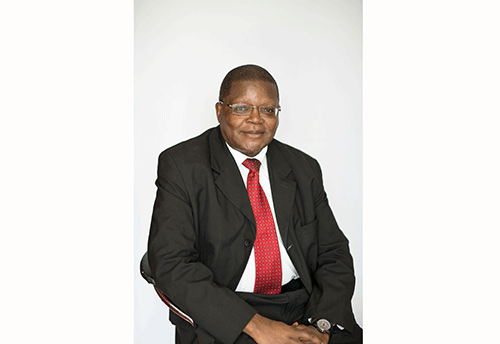Professorial lectures are the backbone of academic life in any university. On Tuesday this week, Professor Catherine Nengomasha, an information science professor in the Faculty of Education and Human Sciences at the University of Namibia, delivered her inaugural professorial lecturer at the institution.
The title of her lecture that drew a huge audience of academics and students was titled ‘Transformation of Records and Archives Management in the Public Service of Namibia’. It is not my aim to reproduce the whole public lecture here verbatim, but to make reference to it here and there in an attempt to explain what a professorial lecture is, who delivers it and why it is important for universities to organise professorial lectures regularly.
A professorial lecture is a source of knowledge and information. In other words, professors use the professorial lecture as a platform for communicating knowledge on topics in their areas of specialisation. Professors spend most of their time researching and publishing their findings in scholarly publications.
Chikere (2020) aptly describes professors as follows: “The professors are path-finders, bearing the developmental pathways for universities; they are in the forefront of knowledge in the educational sector.” Without professors, universities would not be able to fulfil their mandates, visions and mission statements.
Universities regard their professors as foundations of knowledge and professors should prove this through delivering professorial lectures, public lectures and presentation of research papers at conferences. In essence, universities are judged by the number of distinguished professors they have.
Mark my emphasis, distinguished professors, not just ordinary professors. It is important to note that professorial lectures are delivered by full professors (traditionally just called professors, without the word ‘full’) and not by associate professors.
Associate professors take a leaf from their seniors. It is the duty of professors therefore to lead the way in academia by guiding and inspiring young professors and academics in the business of knowledge creation and communication.
By sharing their findings on problems that affect the society, professors demonstrate practical solutions and recommend innovative ways of addressing the challenges.
For example, in her lecture, professor Nengomasha pointed out that her study found out “digitisation is the adoption of digital technologies for business processes. Examples of these are the use of cloud computing, blockchain and artificial intelligence to store, distribute and analyse information and documents.”
Equally, she concluded, “studies on records and archives in Namibia have tended to focus on the public service of Namibia”, and suggests, “there is a need to do more research on the private sector, especially in view of digital transformation.”
Professors in various fields, therefore, showcase their research in a traditional professorial lecture that has become a ritual for universities. It is a tradition which is a pride of every university. Professors share their achievements and contributions to societal development in such a way that makes a ‘town and gown’ distinction between communities, the former meaning the non-academic population of a town, and the latter referring to the university community, derived from the gowns that academics wear. So, next time you see the phrase ‘town and gown’, think of two different communities.
Literature suggests that for professors to concentrate on research and knowledge creation for the benefit of humanity, there is great need of funding from both the government and private sector. The argument is that for this triple-helix (education, government and private sector) to produce the desired results, all the three players should perform their parts well. In addition to sufficient funding, professors’ teaching loads need to be drastically reduced. Heavy loads have placed a strain on professors as they struggle to juggle between teaching and research at the same time. In the end, research activities suffer. The strain on professors can be reduced by attaching teaching assistants or tutors to professors to take care of marking assignments and conducting tutorials. Universities that employ teaching assistants or tutors have assisted their professors a great deal. Research outputs in these universities have significantly increased since professors spend more time conducting research. The teaching assistants or tutors are usually talented postgraduate students who understudy the professors with the aim of taking over in the end. This internship-like training is an effective way of talent identification and mentoring of future academics.
All in all, professorial lectures are an integral part of a university. Since most universities are judged according to the quality of their research outputs, upcoming higher education institutions are urged to empower their academics with funds for research. These new institutions may not necessarily begin with professorial lectures, but they can successfully hold public lectures in order to inculcat
*Professor Jairos Kangira is a professor of English at the University of Namibia. Email address: kjairos@gmail.com



